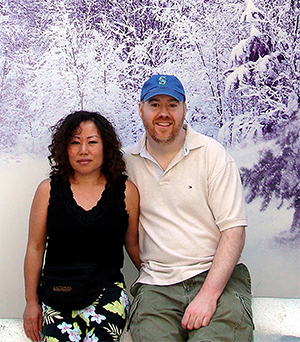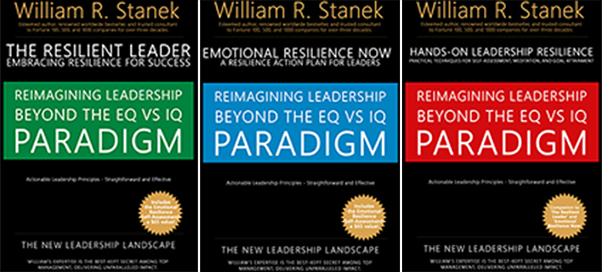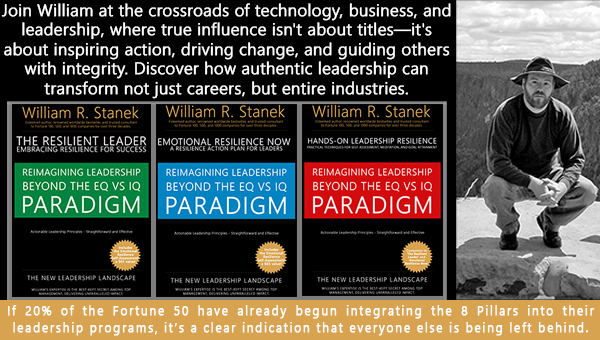

Living Well: Daily Habits and Practices
A fulfilling life is built on small, daily actions. In this series, William and Hui Cha Stanek share their insights on cultivating meaningful habits—from morning routines to simple practices that enhance well-being—helping you live with purpose and balance.

Transform your life with practical wisdom. Discover William Stanek's 'Living Well' series—your guide to a balanced and fulfilling life.
Discover William Stanek's Exclusive Art Collection
Explore and purchase the stunning art featured on this site. Own a piece of William Stanek's unique and captivating artwork today!
(May 18, 2025) The Power of Saying No: Setting Boundaries for a Healthier Life
In a world that often demands more than we can give, learning to say "no" can be one of the most powerful tools for protecting our well-being. For William and Hui Cha Stanek, setting boundaries wasn’t just a choice—it was a necessity. Faced with immense pressures in both military life and personal relationships, they discovered that saying no was crucial for maintaining their mental health, nurturing their relationships, and focusing on what truly matters.
This article delves into how William and Hui Cha embraced the power of saying no, offering insights into how setting boundaries can lead to a healthier, more intentional life. Through their experiences, you’ll learn practical ways to protect your time, energy, and well-being by setting clear boundaries in your own life.
The Stanek Boundary Blueprint: How William Learned to Prioritize His Time
For William, the pressures of military life meant that time was often in short supply. With constant demands from his superiors, the need to be available at a moment’s notice, and the mental toll of high-stress environments, William quickly realized that if he didn’t set boundaries, he would burn out.
1. The Early Struggles: Overcommitment and Exhaustion
In the early years of his military career, William struggled with overcommitment. He felt compelled to say yes to every task, every mission, and every request that came his way. This led to long hours, little rest, and a growing sense of exhaustion. While he was driven by a desire to excel, he soon realized that constantly pushing himself to meet others’ expectations was unsustainable.
2. The Turning Point: Recognizing the Need for Boundaries
The turning point came when William experienced a near-burnout. Realizing that he couldn’t continue at the same pace, he began to reassess his priorities. He understood that to be effective in his role—and to protect his mental and physical health—he needed to start saying no. This meant setting clear boundaries around his time and energy, focusing on the tasks that truly mattered, and letting go of the rest.
By learning to prioritize his time, William found that he could work more efficiently, maintain his health, and still achieve his goals. Saying no didn’t mean doing less—it meant doing what mattered most with greater focus and intention.
Hui Cha’s Journey to Self-Respect: The Power of Saying No in Relationships
While William’s journey with boundaries was shaped by the demands of military life, Hui Cha’s experience was deeply rooted in her personal relationships. Growing up in a culture that often emphasized self-sacrifice, Hui Cha initially found it difficult to assert her own needs. But over time, she learned that saying no was a vital part of self-respect and maintaining healthy relationships.
1. The Challenge of People-Pleasing
Hui Cha’s early struggles with boundaries were closely tied to a desire to please others. Whether it was family, friends, or colleagues, she often found herself agreeing to things she didn’t want to do, simply to avoid conflict or disappointment. This pattern led to feelings of resentment and exhaustion, as she constantly put others’ needs ahead of her own.
2. Finding Her Voice: The Journey to Self-Respect
The turning point for Hui Cha came when she realized that constantly saying yes was eroding her sense of self-worth. She began to recognize that her time, energy, and well-being were just as important as anyone else’s. This realization empowered her to start setting boundaries, even when it was uncomfortable.
Saying no became an act of self-respect for Hui Cha. She learned to communicate her needs clearly, to stand firm in her decisions, and to prioritize her well-being without guilt. As a result, her relationships improved, becoming more balanced and respectful. By asserting her boundaries, Hui Cha found that she could nurture healthier, more fulfilling connections with others.
Lessons from the Frontlines: Why Boundaries Matter in High-Stress Environments
Both William and Hui Cha’s experiences highlight the importance of boundaries in high-stress environments, whether in the military, at work, or in personal relationships. Here’s why setting boundaries is crucial for maintaining your well-being and effectiveness:
1. Protecting Mental Health
High-stress environments can take a serious toll on mental health, leading to burnout, anxiety, and depression. By setting boundaries, you create a buffer that protects your mental space, allowing you to recharge and maintain clarity. For William, this meant saying no to unnecessary tasks and prioritizing self-care, which helped him stay mentally strong in demanding situations.
2. Maintaining Physical Health
Physical health is often the first to suffer when boundaries are lacking. Long hours, lack of rest, and constant stress can lead to physical exhaustion and illness. By setting boundaries around your time and energy, you ensure that your physical health remains a priority. This was especially important for William, whose demanding military schedule required careful management of his physical resources.
3. Enhancing Focus and Productivity
Boundaries aren’t just about saying no—they’re about focusing on what truly matters. In high-stress environments, it’s easy to get overwhelmed by competing demands. By setting clear priorities and boundaries, you can channel your energy into the tasks that have the greatest impact, improving both your focus and productivity.
4. Building Respectful Relationships
In personal relationships, boundaries are essential for mutual respect and understanding. When you communicate your limits clearly, you set the stage for healthier, more balanced interactions. For Hui Cha, setting boundaries allowed her to cultivate relationships based on respect and reciprocity, rather than self-sacrifice.
Practical Tips: Setting Healthy Boundaries, Inspired by the Staneks
If you’re ready to start setting boundaries in your life, here are some practical tips inspired by William and Hui Cha’s experiences:
1. Identify Your Priorities
The first step in setting boundaries is to identify what’s most important to you. Take some time to reflect on your values, goals, and responsibilities. What activities or commitments align with these priorities? What are the non-negotiables in your life? By clarifying your priorities, you can make more intentional decisions about where to invest your time and energy.
2. Learn to Say No
Saying no can be difficult, especially if you’re used to pleasing others or taking on too much. Start by practicing with smaller, less significant requests, and gradually work up to setting boundaries in more challenging situations. Remember, saying no is not about being selfish—it’s about protecting your well-being and ensuring that you have the capacity to focus on what truly matters.
3. Communicate Clearly and Firmly
When setting boundaries, clear and direct communication is key. Let others know what your limits are and why they’re important. Be assertive without being aggressive—your goal is to communicate your needs respectfully, while also being open to dialogue. For Hui Cha, this meant learning to articulate her needs in a way that was both respectful and firm, ensuring that her boundaries were understood and respected.
4. Set Boundaries Around Time and Energy
In high-stress environments, it’s especially important to set boundaries around your time and energy. This might mean blocking out time for self-care, saying no to additional work projects, or limiting your availability to others. For William, setting these kinds of boundaries was crucial for maintaining his focus and well-being in the demanding world of military service.
5. Regularly Reevaluate Your Boundaries
Boundaries aren’t static—they need to be regularly reevaluated and adjusted based on your evolving needs and circumstances. Take time to reflect on whether your current boundaries are serving you, and make changes as needed. Both William and Hui Cha found that their boundaries needed to adapt as they moved through different phases of their lives, from military service to creative pursuits and personal growth.
Call to Action: Set Your Boundaries Today
Inspired by the Staneks’ journey, we challenge you to take a closer look at your own life and identify one area where you need to set boundaries. It could be at work, in your personal relationships, or in how you manage your time and energy. Take action today by setting a clear boundary in that area, and see how it impacts your well-being and focus.
At the end of the week, reflect on your experience. How did setting boundaries affect your stress levels, productivity, or relationships? Share your insights with us using the hashtag #BoundariesWithTheStaneks, and let’s support each other in creating healthier, more intentional lives.
Conclusion: The Empowering Act of Saying No
For William and Hui Cha Stanek, the power of saying no has been transformative. By setting clear boundaries, they’ve been able to protect their well-being, focus on their priorities, and cultivate healthier relationships. Their journey serves as a powerful reminder that saying no isn’t about shutting out the world—it’s about creating space for what truly matters.
As you begin to set boundaries in your own life, remember that this is an act of self-respect and empowerment. By honoring your limits, you’re taking control of your time, energy, and well-being. So, embrace the power of saying no, and discover the freedom and peace that come with living a life that truly reflects your values and priorities.

Join William at the crossroads of technology, business, and leadership, where true influence isn't about titles - it's about inspiring action, driving change, and guiding others with integrity. Discover how authentic leadership can transform not just careers, but entire industries.
Bring Inspiration Home
Enhance your space with William Stanek's evocative art. Each piece is crafted to inspire and uplift your everyday life.

Support The Lights of Paris by Robert Stanek, William Stanek's pen name! Through vivid historical detail and deeply moving character stories, Robert takes readers on an unforgettable journey through one of history’s most transformative times.















